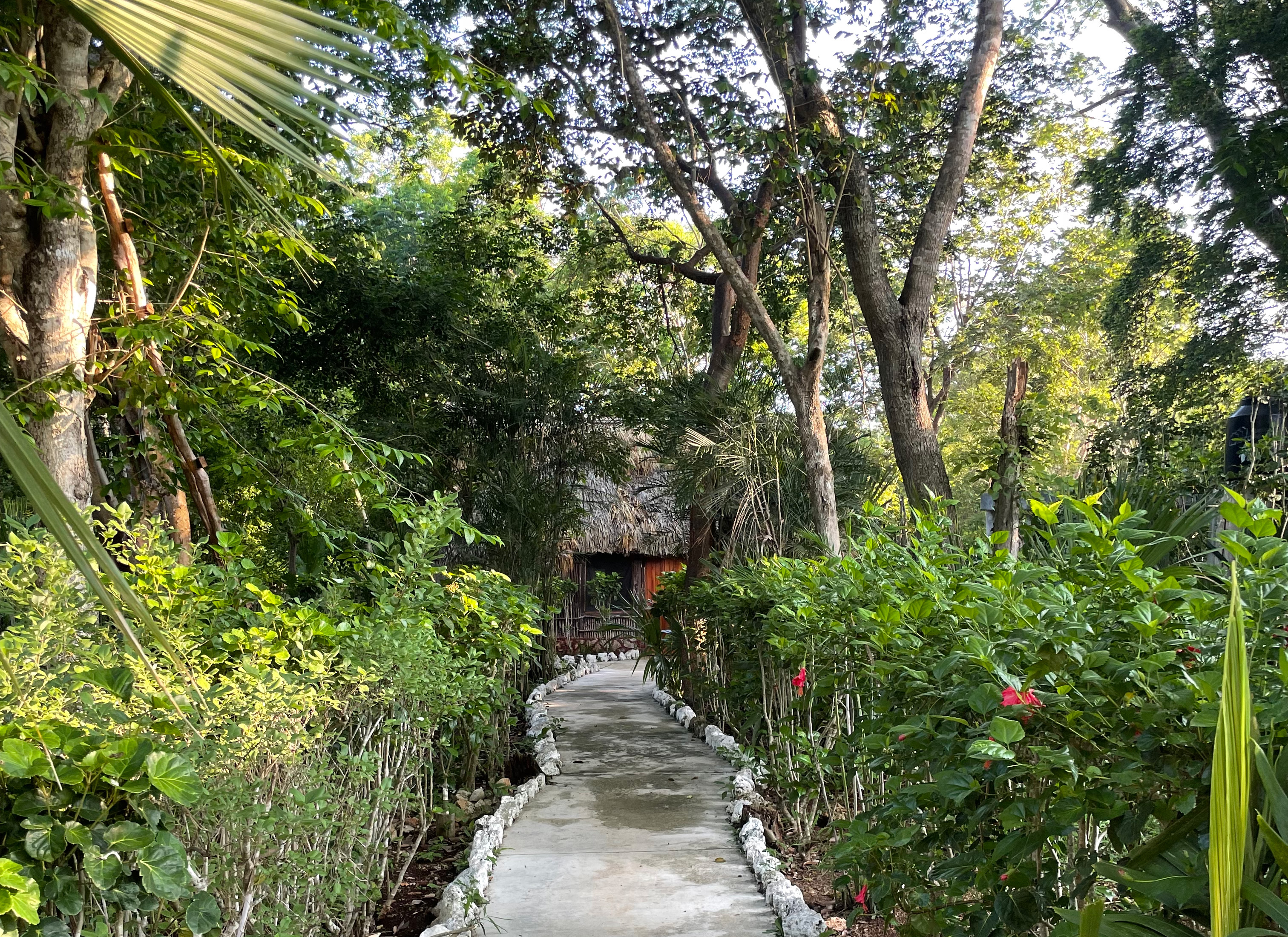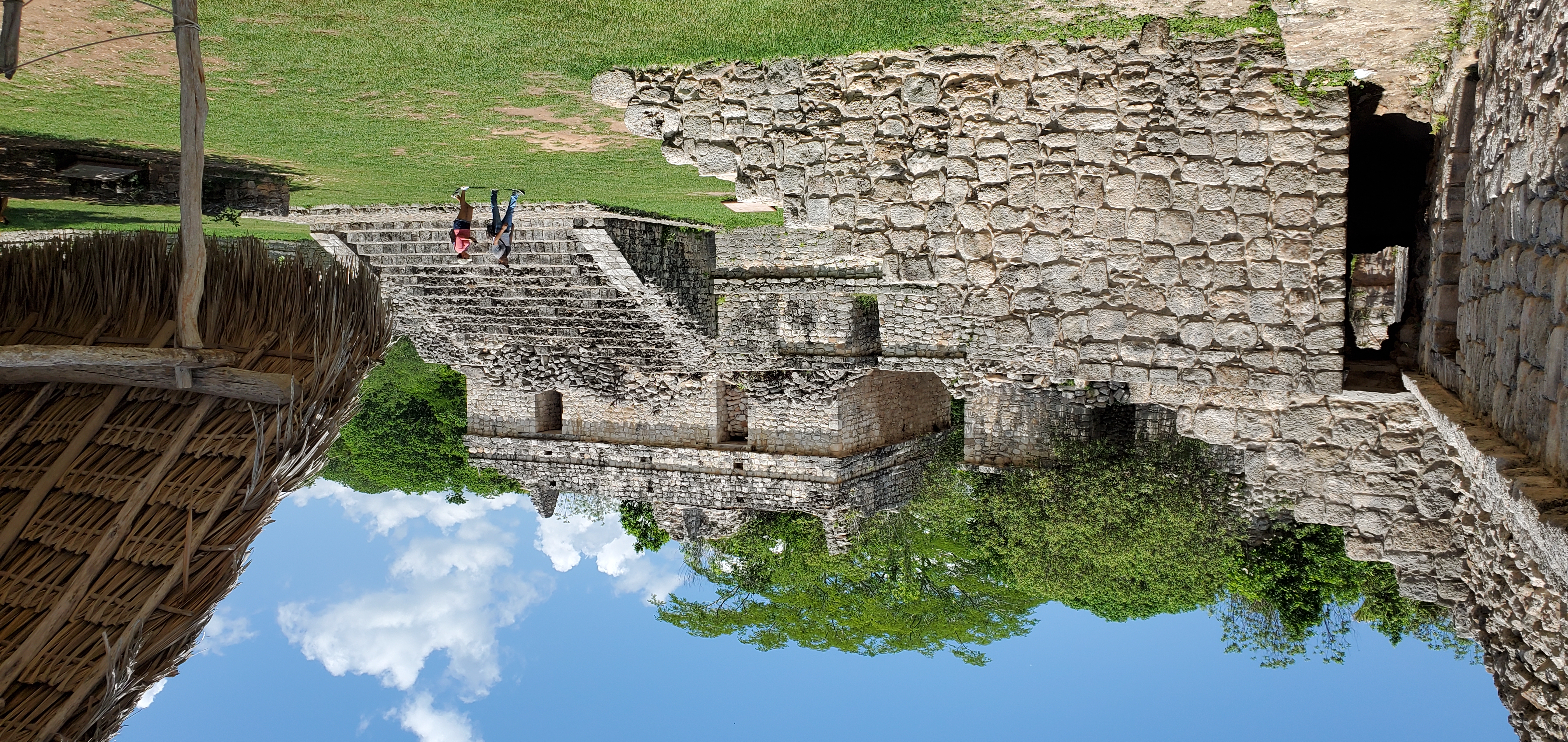
INDIGENOUS MOBILITIES, TOURISM, AND RACIAL CAPITALISM is a Global Humanities Institute that will explore how Indigenous communities creatively respond to the cascading effects of mega-development projects and mass tourism—such as neglect of local needs, dispossession and displacement, destruction of local ecosystems, and other consequences—at various sites around the world. The main institute meeting will be hosted by Universidad Autónoma de Yucatán and held in Yucatán, Mexico, with anticipated dates of January 5–17, 2026.
INDIGENOUS MOBILITIES, TOURISM, AND RACIAL CAPITALISM is a Global Humanities Institute sponsored by the Consortium of Humanities Centers and Institutes. This institute will explore how Indigenous communities creatively respond to the cascading effects of mega-development projects and mass tourism—such as neglect of local needs, dispossession and displacement, destruction of local ecosystems, and other consequences—at various sites around the world—and is a partnership involving three university-based centers:
- The Institute for Advanced Study at the University of Minnesota
- The Unidad de Proyectos Sociales (Center for Social Projects) at the Universidad Autónoma de Yucatán (UADY)
- Humanities Research Centre at Australian National University
Other collaborators include:
- Co’ox Mayab
- Alba Sud
- The Conflucenter for Creative Inquiry at the University of Arizona
- University of California San Diego Department of Communication
The principal collaborators include Lead PI Bianet Castellanos (Distinguished McKnight University Professor of American Studies, director of the Institute for Advanced Study at the University of Minnesota), in conjunction with Yadira Cabarello (program manager of the Conflucenter at the University of Arizona), Matilde Córdoba Azcárate (Associate Professor of Communication and Co-Director of the Nature, Space, Politics group at University of California San Diego and member of the Seminario Permanente Turismo, globalización y sociedades locales at the Universidad Autónoma de Yucatán), Javier Duran (Professor of Latin-American and Border Studies and founding director of the Conflucenter, University of Arizona), Samuel Jouault (Full professor of the Unit of Social Projects at the Universidad Autónoma de Yucatan and associate of the Center of Mexican and Centroamerican Studies), Kylie Message-Jones (Professor of Public Humanities and Director of the Humanities Research Centre at Australian National University), Yujie Zhu (Associate Professor at the Centre for Heritage and Museum Studies and an Associate Fellow at the Humanities Research Centre at Australian National University). A full list of additional collaborators will be added below (to come). The main institute meeting in 2026 will involve an application process that funds up to 20 additional interdisciplinary scholars.
For questions, please write to [email protected].
Expected Timeline
The pre-institute meeting is tentatively scheduled for January 23-27, 2025 in Canberra at the campus of Australian National University. This initial meeting will put in place an application process to fund up to 20 interdisciplinary scholars, with special focus on early career and emerging scholars, as well as community partners, to join this group at the main institute meeting. We anticipate announcing the application process in March 2025.
The main institute meeting, INDIGENOUS MOBILITIES, TOURISM, AND RACIAL CAPITALISM, will be held at Universidad Autónoma de Yucatán in Mérida, Mexico as well as other locations in Yucatán and Quintana Roo, with anticipated dates of January 5-17, 2026 and will include collaborators from all three centers along with those chosen through the application process. INDIGENOUS MOBILITIES, TOURISM, AND RACIAL CAPITALISM will include workshops, decolonial tours, and site visits to community-based tourism projects organized by nearby Maya communities.
We plan to invite local Indigenous and non-Indigenous scholars, community leaders, and activists to lead a variety of panels and workshops; other sessions will allow for a global dialogue on Indigenous cultural practices and activism.
A post-meeting event will be scheduled for Spring 2026 and will likely take the form of a hybrid event on the University of Minnesota Twin Cities campus.

Goals and Questions
In December 2023, portions of the 1,525 kilometer high-speed train project, the Maya Train, began operating, connecting key tourist sites in the Mexican states of Quintana Roo, Yucatán, Campeche, and Chiapas; this project will ultimately attract up to three million tourists. Understanding how mega-development projects like the Maya Train will transform Indigenous social relations and cultural heritage is urgent because Indigenous communities do not often have a voice among the government organizations organizing and advocating for megadevelopment projects. Indigenous communities worldwide are grappling with similar challenges. Our humanities-based approach can serve as a powerful advocate for providing Indigenous communities with equitable access to resources and be a creative tool in generating solutions for the potential pitfalls and social dilemmas caused by the imposition of development projects.
A principal goal of this interdisciplinary institute will be to center Indigenous experiences with tourism economies and racial capitalism, a move that is essential for understanding the lived experience of contemporary Indigenous communities and that aligns with decolonial approaches advocated by Indigenous scholars. Through an inclusive collaborative approach that foregrounds Indigenous ways of knowing, storytelling, language revitalization, the arts, and digital humanities, participants will critically engage with the humanistic dimensions of tourism and consider the social, cultural, political, and ecological ramifications of this type of development model.
Through publication of blogs, interviews, recorded lectures, peer reviewed articles, an edited book, and a special issue of Open Rivers: Rethinking Water, Place and Community dedicated to INDIGENOUS MOBILITIES, TOURISM, AND RACIAL CAPITALISM, our institute will share resources that help to diffuse these critical methods. In doing so, we hope to help other universities to create more equitable and non-hierarchical spaces that center Indigenous people’s concerns and involve Indigenous partners in their work, bolster the credibility of community partners, inspire others to take up this work, and attract more resources to further this work. Additionally, this Global Humanities Institute will forge a new international Indigenous Humanities Network, which will establish best practices for working with Indigenous communities, provide resources for CHCI members, and create a forum for Indigenous scholars.
Our guiding questions include:
- What are the pressing concerns that Indigenous communities have regarding tourism and mega-development projects?
- How has this played out in different local contexts and on the land itself?
- What are strategies for centering Indigenous experiences and demands in the face of megadevelopment?
- How can a humanities-centered approach help address these crises and imagine new futures?
- Is it possible to construct futures in which Indigeneity, non-human relations, tourism, and mega-development goals align?